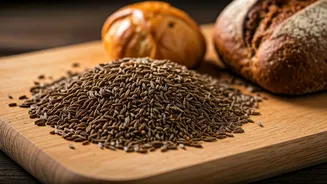Food and Body Odor
The food we consume plays a vital role in the composition of our body odor. When we digest food, the compounds are absorbed into the bloodstream, and eventually,
some of these compounds are released through sweat. The process of sweating, regulated by the apocrine glands (in areas like the armpits and groin) and the eccrine glands (all over the body), is where these scent-altering compounds are expelled. These compounds then mix with bacteria on the skin, resulting in the distinct smell. Dietary choices can dramatically shift the characteristics of our body odor, with certain foods amplifying it and others creating a neutral or even pleasant scent profile. Understanding these food-odor dynamics is crucial for anyone keen on managing and enhancing their natural aroma.
Foods That Enhance
Certain food groups are known to contribute to a more appealing body odor. Eating plenty of fruits and vegetables, particularly those high in chlorophyll and antioxidants, can provide your body with essential nutrients, which promote overall health and a fresher smell. Citrus fruits, like oranges and lemons, contain limonene, a compound that can enhance the scent. Similarly, incorporating green vegetables into your diet, such as spinach and kale, can reduce body odor due to their high chlorophyll content, which is a natural deodorizer. Moreover, a diet rich in healthy fats, such as those found in fish, can improve skin health and contribute to a more pleasant aroma. The key takeaway is that by consciously including these foods in your daily routine, you can promote a body odor that is generally perceived as more attractive.
Foods That Diminish
Conversely, some foods are notorious for intensifying or creating an unpleasant body odor. Foods in the allium family, such as garlic and onions, contain sulfur compounds that break down during digestion and are released through sweat, causing a strong and sometimes offensive odor. Likewise, cruciferous vegetables, like broccoli and cabbage, may also lead to a more pungent scent, particularly when consumed in large amounts, because of their sulphur content. Consumption of alcohol can lead to a more noticeable odor, as the body processes alcohol through sweat. Caffeine may also contribute to body odor. By understanding how these foods affect our body's chemistry and odor, we can make informed dietary choices to either diminish or potentially neutralize unwanted body scents.











